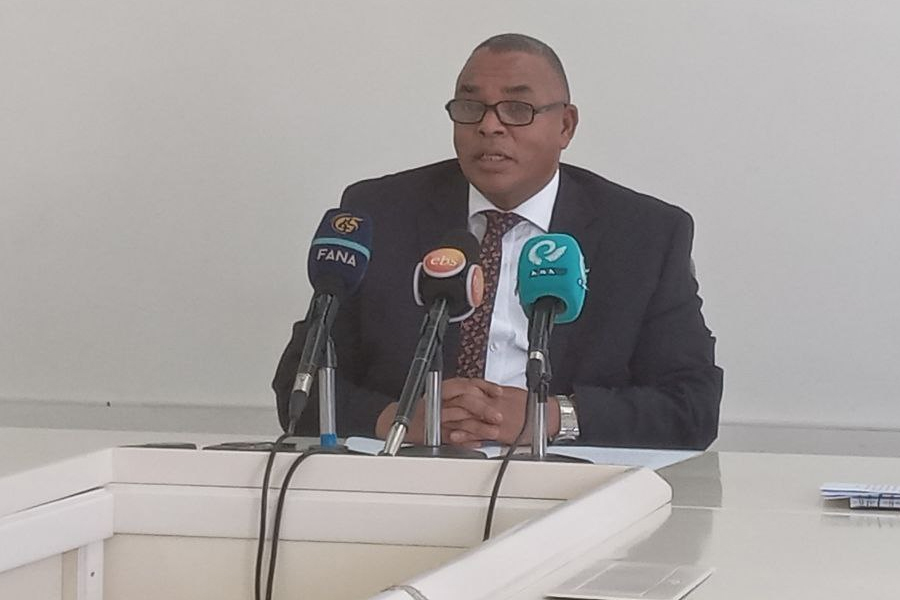
Viewpoints | Jun 05,2021
Mebruk Mohammed,in her early 20s, is a second-year nursing student at Kea-Med Medical College. Having graduated from a private secondary school in her neighbourhood, it was her placement in Dilla University for engineering courses that drove her to seek private educational institutions for an academic career.
“It was too far from home,” she says, talking about her placement in Dilla, some 295Km from the capital. “I am also no good with numbers.”
After discussing the matter with her family, she decided to stay in Addis Abeba and settled on Kea-Med College, which had a campus in Ayer Tena. She chose to major in nursing, as did 50 other nursing students that enrolled at the College in 2017.
“The teachers are professional, and the library is decent,” says Mebruk, who is currently in her second year.
It was thus a shock to learn that Kea-Med was not licensed to graduate students in clinical nursing all along. This was according to a recent audit the Higher Education Relevance & Quality Agency (HERQA), the government body responsible for regulating private higher education institutions, carried out on 167 private higher education institutions in Addis Abeba and its surroundings.
The audit found irregularities at 46 institutions. Contrary to their permits, the colleges were teaching regular classes when in fact they had permits to teach distance learning programs; not renewing accreditation certificates; changing locations without notifying the Agency; and using unapproved higher institutional teaching titles.
The audit found that 27 institutions were operating without accreditation by the Agency.
While some were operating for no more than a semester, others have been operating for two years or more, according to Andualem Admassie (PhD), director general of Higher Education Relevance & Quality Agency.
Private institutions must have a curriculum that matches the minimum national standards set by the Ministry of Science & Higher Education to be accredited. They should also have the necessary academic staff, institutional governing structures, teaching materials, classrooms and libraries.
One of the oldest private institutions caught up in the audit is Rift Valley University, which was established 20 years ago. Its campuses located in Ayat in Addis Abeba; Ashewa Meda, on the outskirts of the capital; Sheno, North Shoa; and Holeta, a town 25Km west of the capital, were not recognised by the Agency as teaching campuses.
“Our Sheno branch was never a campus but a satellite station for distance learning,” said Fikadu Ashenafi, administrative and development vice president of Rift Valley University. “We were trying to move our Goro compound to the Ayat campus. In the ensuing delay for approval, both facilities started operating.”
Nonetheless, the Ayat campus is equipped with facilities and was, in fact, admitting students. Fikadu admits that Rift Valley never received a permit to open campuses in Ashewa Meda and Holeta.
“The problem is bureaucratic hurdles and slow paperwork from the Agency,” he added. “The Agency makes us wait almost a year for a permit after we request it.”
Another case the audit found is the change of higher institutional teaching titles. The first accreditation a college gets lasts for three years, and the college from then on will have to be re-accredited every five years by the Agency. It is through such a process that institutions are accredited with titles such as “university”, “university college”, “college” and “institute”.
For an institution to earn the “university” or “university college” title it has to have a minimum enrollment capacity of 2,000 students in the regular program in at least three academic units larger than departments. It must also have a record of at least three consecutive classes of graduates in a degree program.
Three colleges were found calling themselves university colleges, a title which was not granted by the Agency.
“The use of "university college" by these institutions is to deceive students and is more than false marketing,” Andualem told Fortune.
However, he acknowledges that there are gaps in the part of the Agency that is leading to deficiencies.
“The Agency suffers from bureaucratic problems, and there were delays in giving out services,” he says. “This though was no justification for private institutions to act the way they did.”
There are currently 94,692 students attending classes in private higher education institutions, while over eight times as many are enrolled at state-owned universities. There are also 367,925 students in the 462 technical and vocational training institutions around the country.
The National Education & Examination Assessment Agency sets a benchmark for the 12th-grade national university entrance examination to admit students to state universities.
Last year, over a quarter of a million senior high school students sat for national exams and 213,621 met the bench mark. The state also assigns students to the various universities, and at least two-thirds attend schools that they are placed in.
Early last week, Hirut WoldeMariam (Prof.), minister of Higher Education & Science, presented a nine-month report to parliament. The audit report became a topic of debate.
“The situation is not only a result of the actions of the private institutions but also the consequence of the malpractices of the Agency,” said Ketema Tufa, an MP.
Tirusew Tefera (Prof), an education expert, agrees with Ketema.
“The Agency should boost its human resources, engage experts in the field of education, as well as build its financial capacity,” he says. “It should work toward its independence and accountability.”
Cognizant of its shortcomings, the Agency, which is currently processing 63 new requests for colleges, has recently hired 40 experts.
The Agency has also, in collaboration with the Ministry of Innovation & Technology, begun designing a database system of registry for all students and graduates of private institutions. So far it has registered 127,891 students and graduates from 71 institutions.
Following its audit findings, the Agency has taken corrective measures on 24 learning institutions thus far.
Rift Valley University was told by the Agency to close four of its campuses that were opened without accreditation and to provide a list of its students at these campuses so that they could be transferred.
Legal proceedings have been instituted against three colleges, and the Agency is preparing to sue 15 more others.
“We passed differing decisions after evaluating the current statuses of the colleges,” said Andualem. “Our priorities are the students, and we will be doing everything in our power not to put them through further abuse.”
Mebruk has been lucky in this regard. Kea-Med Medical was only prohibited from admitting students in clinical nursing for the next two years.
“I am sure it was just a paperwork problem,” she says. “My school is qualified.”
But Anudalem says dealing with the case of current students is nothing compared to dealing with the complexity of that of graduate students from such institutions.
“There are thousands of graduates who came out of these unqualified colleges, and they are currently working in various institutions,” said Andualem. “While the decision to recall these degrees or not is being made, we will soon start auditing the credentials of graduates.”
PUBLISHED ON
May 04,2019 [ VOL
20 , NO
992]

Viewpoints | Jun 05,2021

Radar | Aug 18,2024

Fortune News | Sep 13,2025

Commentaries | Nov 11,2023

Fortune News | Nov 04,2023

Radar | Jan 19,2024

Fortune News | Sep 10,2022

Covid-19 | Aug 08,2020

Commentaries | Apr 26,2025

Radar | Nov 11,2023

Dec 22 , 2024 . By TIZITA SHEWAFERAW
Charged with transforming colossal state-owned enterprises into modern and competitiv...

Aug 18 , 2024 . By AKSAH ITALO
Although predictable Yonas Zerihun's job in the ride-hailing service is not immune to...

Jul 28 , 2024 . By TIZITA SHEWAFERAW
Unhabitual, perhaps too many, Samuel Gebreyohannes, 38, used to occasionally enjoy a couple of beers at breakfast. However, he recently swit...

Jul 13 , 2024 . By AKSAH ITALO
Investors who rely on tractors, trucks, and field vehicles for commuting, transporting commodities, and f...

Sep 13 , 2025
At its launch in Nairobi two years ago, the Africa Climate Summit was billed as the f...

Sep 6 , 2025
The dawn of a new year is more than a simple turning of the calendar. It is a moment...

Aug 30 , 2025
For Germans, Otto von Bismarck is first remembered as the architect of a unified nati...

Aug 23 , 2025
Banks have a new obsession. After decades chasing deposits and, more recently, digita...